As the cooler weather approaches and we enjoy the warmth of the sun during the day and cooler nights snuggled under our doona, this is also a time of year where we can be more susceptible to infection. The shorter days and longer nights of winter mean less sunlight and therefore less natural Vitamin D, which helps to power our immune system.
It’s always best to speak to your health care professional on the best way to evaluate and support a healthy immune response as an individual, however, here are some tips to get you started:
- Get your Vitamin D levels assessed before the winter season commences and consume vitamin D rich foods, including:
- Fish – especially salmon, tuna, herring, sardines, and mackerel, eggs, fortified products
- Consume plenty of garlic, ideally local and fresh or very lightly cooked. Garlic contains active organosulfur compounds (OSCs) which contain antiviral properties and is a great food as medicine as well as for preventative care.
- Zinc is an essential trace element that is very important for many aspects of health including the maintenance of immune function. Zinc deficient populations are often most at risk of acquiring viral infections and the global prevalence of zinc deficiency is estimated to range from 17-20%. Zinc status can be assessed via a pathology test. Consuming dietary zinc is key to maintaining adequate zinc levels, and zinc rich foods include:
- Oyster, beef, crab meat, chicken, turkey, pork, yoghurt, milk, cashews, chickpeas, almonds, peanuts, cheese, baked beans, pumpkin seeds, oats, and fortified products
- Consume bone broths, stews, curries, and warming foods in winter, as well as nice warming spices such as chilli, turmeric, cinnamon, ginger
- Keep warm, including the chest and throat areas when going out in cold weather, and try to breathe through your nose. Nose breathing is beneficial is it warms, humidifies, moistens and filters the air. It also imposes approximately 50% more resistance to the air stream as compared to mouth breathing, resulting in a 10-20% increase in oxygen uptake.
It’s normal to get the occasional cold, the aim is to decrease the frequency, duration and severity by supporting a healthy immune system. This means a healthy nutrient and antioxidant rich diet with adequate protein intake of course, additionally just as important is adequate sleep, not being too stressed for long periods of time, having things you enjoy doing, connecting with nature and getting outside, and spending time with loved ones.
In health,
Tina.
Tina is a senior Clinical Nutritionist, Naturopath, Psychotherapist, Lecturer and PhD candidate at Herbs on the Hill with 13 years of clinical experience
Foster, H. (2014). The Reason for the Season: why flu strikes in winter. Harvard University.
Linus Pauling Institute (2021). Micronutrients for Health. Oregon State University.
National Institute of Health (2021). Zinc Fact Sheet for Health Professionals. Office of Dietary Supplements.
Read, S. A., Obeid, S., Ahlenstiel, C., & Ahlenstiel, G. (2019). The role of zinc in antiviral immunity. Advances in Nutrition, 10(4), 696-710.
Rouf, R., Uddin, S. J., Sarker, D. K., Islam, M. T., Ali, E. S., Shilpi, J. A., … & Sarker, S. D. (2020). Anti-viral potential of garlic (Allium sativum) and it’s organosulfur compounds: A systematic update of pre-clinical and clinical data. Trends in Food Science & Technology.
RuTH, D. A. (2015). The health benefits of nose breathing. Nursing in General Practice, 40-42.

